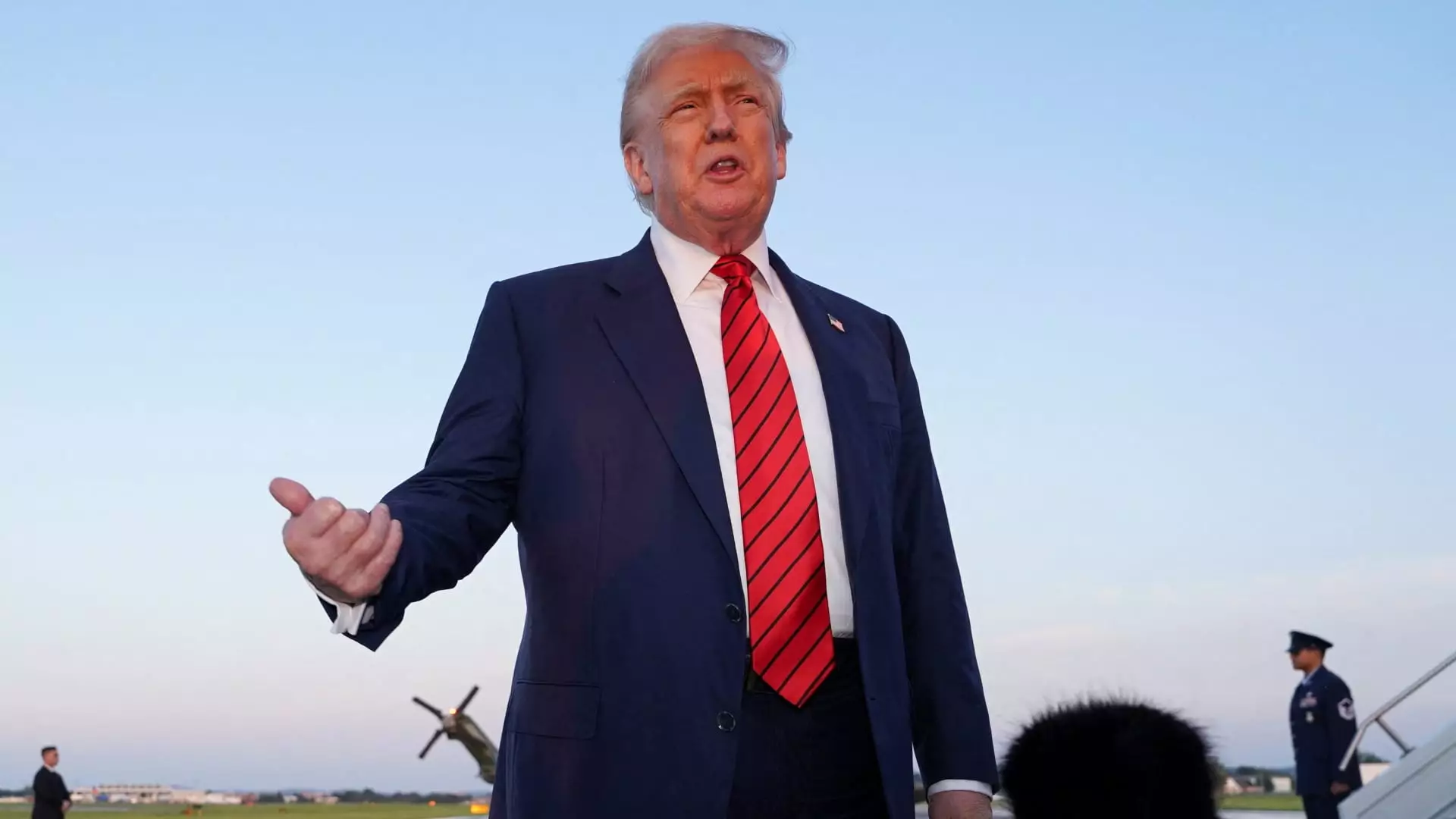The Trump administration’s announcement of potential tariffs soaring as high as 250% on imported pharmaceuticals is a reckless gambit cloaked in the language of national security and economic patriotism. While the administration insists that these measures are meant to incentivize domestic manufacturing, they fundamentally overlook the intricate realities of a complex industry that cannot be easily reshaped through tariff hikes. This approach, driven more by political posturing than pragmatic economic policy, risks destabilizing a vital sector that millions of Americans rely on daily.
Tariffs, particularly of such magnitude, do not operate in a vacuum. They inevitably distort market dynamics, inflate costs for consumers, and threaten to choke off the very supply chains that keep drugs accessible and affordable. Instead of fostering innovation or encouraging investment, these punitive measures create a climate rife with uncertainty. The idea that national security can be secured by taxing imports — especially those as essential as pharmaceuticals — neglects the essential interconnectedness of global supply chains. Indeed, the reliance on imports for raw materials and active pharmaceutical ingredients (APIs) is a painstakingly built ecosystem that cannot simply be replaced overnight with tariffs.
The False Promise of Drug Industry Revival
The administration’s messaging hinges on the promise of revitalizing American manufacturing. Yet, this promise is superficial and short-sighted. Big Pharma’s recent investments in U.S. facilities are driven largely by strategic business decisions, not government incentives or tariffs. Forcing companies to domesticize production through punitive tariffs ignores the reality that shifting manufacturing is capital-intensive, time-consuming, and fraught with regulatory hurdles. More critically, it ignores the core issue: the globalized nature of pharmaceutical production, which has lowered costs and increased access worldwide.
Instead of protecting health through domestic production, tariffs threaten to spike drug prices, placing a greater financial burden on American families. The very industries that Trump seeks to bolster warn that such policies could lead to shortages, delays, and higher costs. Dismissing these warnings as mere industry resistance is shortsighted; they are rooted in genuine concern for patient safety and industry stability. The idea that tariffs can solve deep-seated supply chain vulnerabilities underestimates the complexity involved and undervalues international cooperation’s role in ensuring medicine affordability.
The Politicization of Healthcare and Its Consequences
Trump’s flirtation with aggressive measures to “lower drug prices” — through executive orders and threats of tariffs — reveals a fundamental misunderstanding of the healthcare ecosystem. Linking drug prices to foreign costs via the “most favored nation” policy simplifies a nuanced issue into a political talking point. While reducing costs is a legitimate goal, abruptly tying pricing policies to complex international negotiations ignores the risk of unintended consequences, such as pharmaceutical companies pulling back on research investment or reducing the availability of innovative drugs.
Furthermore, these policies seem less about actual patient benefit and more about appeasing political constituents concerned about high drug prices. But the problem is that such aggressive measures often have the opposite effect: They undermine the very innovation necessary to develop new treatments. By threatening to impose huge tariffs or link prices too aggressively, the administration creates an environment where pharmaceutical companies may become wary of long-term investments in breakthrough research, fearing that their future profits will be undermined by unpredictable policy shifts.
The Reality of Industry Resistance and Moral Neglect
The industry’s warnings about tariffs and policy changes are often brushed aside as obstructive or overly cautious. However, they serve as a critical caution against drastic government interventions that threaten the stability and innovation capacity of the pharmaceutical sector. By focusing on short-term political victories — like imposing tariffs — policymakers overlook the long-term harm inflicted on both the industry and the patients it serves.
Protecting profits at the expense of access reflects a disturbing prioritization. When policies threaten to limit supply, increase prices, and stifle innovation, it reveals a troubling disconnect from the fundamental purpose of healthcare. America’s pharmaceutical industry, while imperfect, is one of the world’s most innovative, precisely because it balances public health interests with economic incentives. Undermining that balance with punitive tariffs and political maneuvers risks sacrificing the very progress that has allowed the U.S. to lead in medicine and life sciences.
In the end, the pursuit of protectionism through tariffs and aggressive pricing policies reveals a fundamental flaw in leadership: an obsession with short-term political gains rather than sound, patient-centered policy. The true cost of these strategies may not be immediately visible, but it will undoubtedly be paid in the form of higher healthcare costs, diminished innovation, and compromised patient safety. Policies that promote inclusive, sustainable growth in healthcare require thoughtful engagement with industry, scientific expertise, and international cooperation — not reckless tariff threats.


Leave a Reply